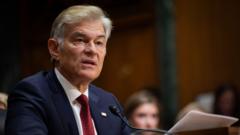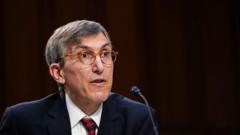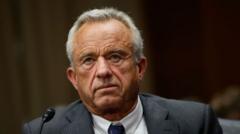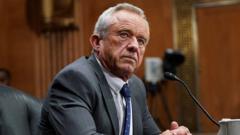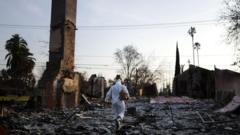Health Secretary Robert F. Kennedy Jr. has announced the cancellation of $500 million in funding for mRNA vaccine development, shifting focus to alternative vaccination strategies. Critics warn this could hinder future pandemic preparedness.
$500 Million Funding for mRNA Vaccine Development Halted by HHS

$500 Million Funding for mRNA Vaccine Development Halted by HHS
The U.S. Department of Health and Human Services announces the cancellation of significant funding for mRNA vaccine projects amid concerns over safety and efficacy.
The U.S. Department of Health and Human Services (HHS) has made the controversial decision to cancel $500 million (£376 million) in funding aimed at developing mRNA vaccines specifically designed to combat viruses, such as the flu and Covid-19. This funding cut will affect 22 ongoing projects headed by prominent pharmaceutical companies, including Pfizer and Moderna, that are focused on vaccines for bird flu and other infectious diseases.
Health Secretary Robert F. Kennedy Jr., a noted skeptic of vaccines, is pulling the funding based on claims that "mRNA technology poses more risks than benefits for these respiratory viruses." This move has drawn criticism from medical professionals and public health advocates who argue that Kennedy's skepticism undermines the critical advancements made in vaccine technology. Peter Lurie, a former official at the U.S. Food and Drug Administration, expressed concern, stating that the decision marks the U.S.'s "turning its back on one of the most promising tools to fight the next pandemic."
In Kennedy's statement, it was emphasized that his team had thoroughly reviewed scientific data and consulted with experts before the funding reallocation. He stated that current data indicates the vaccines do not provide adequate protection against diseases like influenza and Covid-19, and therefore, resources would be redirected towards developing "safer, broader vaccine platforms" that can adapt to the evolution of viral strains.
Kennedy further claimed that mRNA vaccines might contribute to the emergence of new viral mutations, thereby extending the duration of pandemics as viruses evolve to evade vaccine-induced immunity. However, health experts, including Dr. Paul Offit from the Vaccine Education Center in Philadelphia, pointed out that viruses mutate irrespective of vaccine availability. He noted that although the flu virus undergoes annual mutations, the non-mutating nature of viruses like measles persists despite the widespread administration of vaccines.
HHS indicated that the division managing these vaccine projects, Biomedical Advanced Research and Development Authority (BARDA), will now pivot its focus toward vaccine development platforms with established safety records and transparent clinical and manufacturing processes. Unlike traditional vaccines that utilize inactivated pathogens, mRNA vaccines operate by instructing human cells to produce proteins that incite an immune response. Both Moderna and Pfizer's mRNA vaccines underwent extensive testing with thousands of participants before their public roll-out, proving their efficacy and safety to experts like Dr. Offit.
This funding cancellation raises alarms about America's preparedness for potential pandemics in the future. Dr. Offit underlined the importance of mRNA vaccines in facilitating rapid responses to emerging infectious diseases, emphasizing that their shorter development timelines were pivotal during the Covid crisis. Since assuming office, Kennedy has taken multiple measures to reshape the health department's approach to vaccines, including restructuring the advisory committee responsible for vaccine recommendations. He has also removed the Covid vaccine from the official immunization schedule recommended for healthy children and pregnant women, further solidifying his departure from conventional public health policies.











